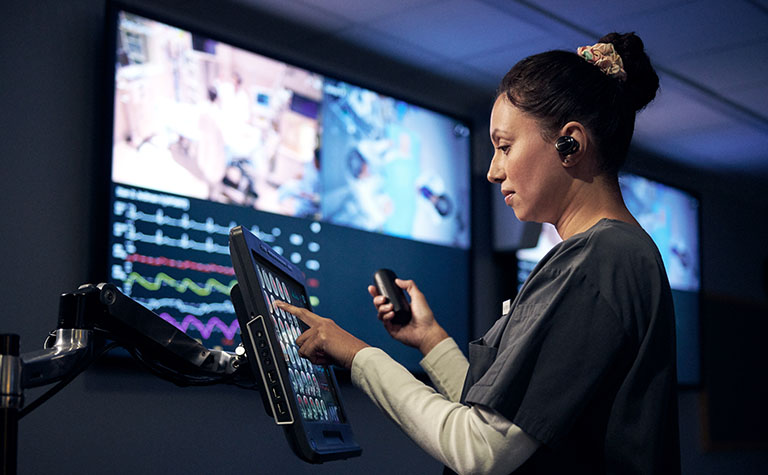
Most of us are familiar with private Wi-Fi networks in a home or office. Get the password and you're in. With the advent of 5G, some businesses are becoming interested in a turbocharged version: a private 5G network right on the property.
Wi-Fi works great for web browsing and watching videos. So does normal commercial cellular service. A private cellular network goes a step further. It's for companies who are thinking about big-time numbers of connections in a building, campus or industrial area - along with extra security and more operational control.
In the past, a local network with these lofty goals had to be wired, not wireless. It was limited by physical connections and high costs. The excitement over 5G is that it can deliver fast speeds, lower latency and massive connectivity - but without the need to be tethered to wall outlets.
And there’s more: As 5G networks reach full compliance with 5G industry standards over the coming years, they should become the most secure generation of mobile broadband yet.
So, you manage a hospital, factory or other major space. You want to connect thousands of machines and sensors. Your solution could take several forms:
- Some organizations simply want the commercial AT&T 5G network. But they want it built extensively in their private space. We’ve done exactly that at AT&T Stadium in Dallas. Fans will get experiences like live stats projected over the field on their smartphone camera.
- Others are enhancing their 5G coverage with the ability to control specific local traffic themselves. They can peel off certain data flows for “edge computing.” This means alarms in a factory, for instance, could be processed right on the premises – and thus much more quickly. MxD, a manufacturing innovation center in Chicago, is showing how fractions of seconds can help solve quality, safety and inventory issues.
- Some organizations want a truly private, standalone 5G system. They envision full control of a "local area network" similar to corporate Wi-Fi, but with the performance, reliability and security of cellular. Nellis Air Force Base in Nevada is testing one flavor: a 5G-powered command-and-control center on a trailer. It will form the hub of a moveable, private cellular network for local personnel in a conflict area.
This is the cutting edge of connectivity. It's how the Internet of Things will see explosive growth. Insert your business case here.
Of course private networks need careful thought and consulting. Considerations include design, spectrum and who's going to actually run it. Even a standalone network - and even 5G - must be set up properly to achieve the highest security against cyberattacks.
In the end, businesses want to maximize the advantages of AT&T 5G. And that should make the average consumer feel good. We're rolling out 5G for everyone - in public spaces and neighborhoods all over the country.
Rita Marty is a vice president of the AT&T Chief Security Office. She leads the development of 5G security.


